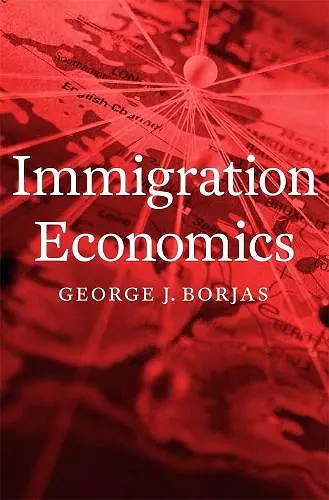Immigration Economics
Understanding the Economics of Global Migration
Format:Hardback
Publisher:Harvard University Press
Published:9th Jun '14
Should be back in stock very soon

This insightful book examines the causes and effects of international migration, offering a nuanced understanding of immigration's economic impact and implications for policy.
In Immigration Economics, George Borjas explores the complex dynamics of international labor flows, revealing that nearly 3% of the global population now resides outside their country of birth. This book synthesizes various theories, models, and econometric methods to analyze the causes and consequences of migration. Borjas presents a comprehensive overview of essential topics, including migrant worker selection, assimilation processes, and the impact of immigration on labor markets and wages.
The author emphasizes that immigration is not merely a demographic shift but also a significant economic phenomenon with far-reaching implications. As developed countries increasingly become destinations for migrants, understanding the economic effects of this transformation is crucial for informed policy-making. Borjas argues that while some individuals benefit from immigration, others may face challenges, highlighting the distributional consequences that can arise within labor markets.
Furthermore, Borjas posits that immigrants act as rational economic agents, striving to optimize their circumstances. This perspective extends to native workers in host countries, who also navigate the economic landscape in response to immigration. By framing the debate around these insights, Immigration Economics provides valuable guidance for economists and policymakers seeking to address contemporary immigration issues effectively.
This excellent book is crisply and clearly written and makes a significant contribution to the fields of labor and immigration economics. It will be a go-to resource on immigration for many years to come. -- Gordon H. Hanson, University of California, San Diego
This book is an excellent synthesis of a diverse set of theory and empirical work on immigration. It is well organized, with early chapters doing a good job of setting up the later ones. I have never seen a better job of bringing together such diverse topics as assimilation, selection, and labor market impacts. The author has done an effective job of simplifying the theories down to their essences; and developing equations that make the theories’ implications plain to see with simple algebra, often accompanied by a clear figure. It will be accessible and interest-provoking to graduate and advanced undergraduate students in economics. -- Ethan G. Lewis, Dartmouth College
ISBN: 9780674049772
Dimensions: unknown
Weight: unknown
296 pages